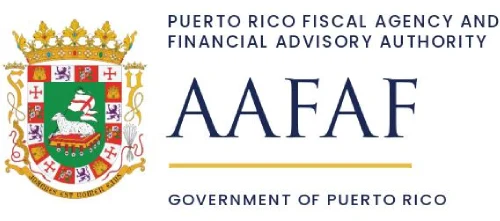The Financial Oversight and Management Board approved the release of the $144.3 million for the first of two phases of salary adjustments, which went into effect on Jan. 1 of this year, impacting 53% of the more than 22,000 uniform remuneration plan employees
Following a pilot project, the Financial Oversight and Management Board has provided a strategy to implement a government-wide civil service reform (CSR), including the addition of $45 million annually starting in 2024 to expand a uniform remuneration plan (URP), according to the recent 2023 certified fiscal plan.
In April 2022, the oversight board announced that it had collaborated with the island Treasury Department and the Office of Management and Budget (OMB) on a pilot program that enabled Treasury and OMB workers to earn a market-based salary for the first time.
The prior 2022 certified fiscal plan allocated $99.6 million for the implementation of the new URP contingent upon the successful completion of the pilot CSR and robust planning of a government-wide implementation of the reform. The $99.6 million remuneration plan budget allocation includes $16.6 million, or 20% more than the initial $83 million remuneration plan budget request submitted by the government in 2021, to ensure enough funds were available to bring all incumbent government employees to market competitive salary rates.
The release of the $45 million in funds is contingent upon the government meeting government-wide implementation planning and preparation deliverables, milestones and objectives in a timely manner.
“This two-phase implementation approach will serve as an incentive to continue the work of the reform and further cement its sustainability, while keeping the commitment to pay at market competitive salary rates,” the fiscal plan notes.
While the oversight board and the government had agreed to paying incumbent central government employees at market competitive rates, after conducting the market-based benchmarking analysis, placing all employees in the new salary structure based on their new job classification, and calculating the budgetary impact, it was found that adjusting employees’ current salaries to the competitive range (90% of salary scale midpoint) and employees in “hot jobs” to 110% of salary scale midpoint, has a cost of some $144.3 million, the plan report says.
“The $144.3 million budgeted therefore allows for incumbent employees to be brought to the minimum of the new salary scales (not 90% of midpoint), and ‘hot jobs’ to the midpoint of the new scales (not 110% of midpoint),” the report says.
Further work is required for scaling CSR and establishing the technological, organizational and workforce infrastructure that is necessary for the dissemination and expansion of CSR throughout government, according to the report.
An agreement was reached to apply salary adjustments in two phases. The oversight board approved the release of the $144.3 million for the first phase of salary adjustments, which went into effect on Jan. 1 of this year, impacting 53% of the more than 22,000 UPR employees and bringing the current salary of incumbent employees to the minimum of their respective new salary scales and employees with “hot jobs” to the midpoint of the scales.
“Phase 2 salary adjustments, pending the Government establishing urgency required for compliance of all remaining government-wide implementation planning and preparation and implementation deliverables, will be implemented in fiscal year (FY) 2024 and will bring incumbent employees to 90% of the midpoint of their scales and employees with ‘hot jobs’ to 110% of the midpoint of the scales,” the report notes.
Separately, the 2023 Certified Fiscal Plan includes $42 million annually beginning in FY 2024 for salary increases for the Department of Justice employees, executive branch employees, and judicial branch employees and judges if certain conditions are met.
For the CSR to be successful and lasting, the government must frequently revise and review its compensation policies, the fiscal plan says.
“The Government must issue regulations pertaining to all other aspects of our public servants’ compensation, in accordance with its new compensation philosophy subject to budgetary constraints,” the plan states.
Fuente: The San Juan Daily Star


